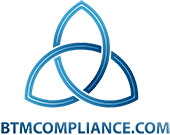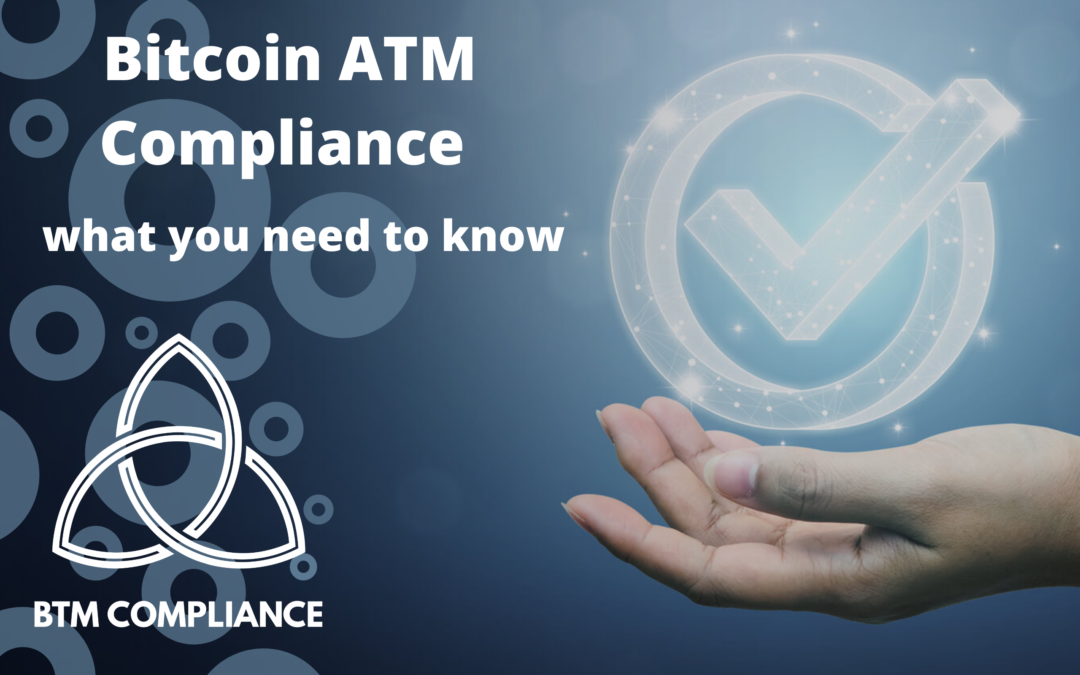60% of the worlds Bitcoin ATMs are operated in the United States. However, if you’re looking to operate a Bitcoin ATM business there is a lot more to it than just buying the machine and plugging it in. As a Bitcoin ATM operator, your business has to stay compliant with not only federal regulations, but also state ones.
Before starting your Bitcoin ATM fleet it’s important that you do your homework on the costs and work it takes to stay compliant within the industry. This is especially true if you only plan on operating one or two machines, as the time and cost of compliance might not be worth it for that small of a fleet.
The process of staying compliant
As a Bitcoin ATM operator, you will be considered a Money Service Business (MSB) by the Financial Crimes Enforcement Network (FinCEN). As an MSB certain things are required to meet legal financial compliance protocols.
-
Registration with FinCEN
As a Money Service Business, you are required to register with FinCEN within 180 days of operation. This can be confusing since the MSB application is catered to several different types of business, and some fields are required while others aren’t for different business types. Typically, it only takes around 30-45 minutes to fill out the FinCEN Form 107 . Beyond the initial registration you will be required to renew it every two years.
-
Comply with Bank Secrecy Act
Once you’ve registered with FinCEN you will be required to comply with the Bank Secrecy Act (BSA). This includes creating a written AML and KYC program. What are those you might ask? Let’s take a look.
-
Anti-money laundering program (AML)
As a Bitcoin ATM operator, you are required, by the BSA, to establish an anti-money laundering compliance program. Your AML is a written document that highlights and explains your overall plan to avert money laundering and financial terrorist activities.
-
Appoint a dedicated compliance officer
As a part of your AML program, you will have to appoint a compliance officer who’s responsible for overseeing the development and implementation of your AML program. On top of implementation the compliance officer will need to ensure the necessary data is collected, records are maintained for five years, and that necessary information is reported when required by regulation.
-
Implement KYC
An important part of your AML program is your KYC, or Know-Your-Customer. KYC is the process of verifying the identity of your customers, understanding the risk they pose to Bitcoin ATM operators’ company, and continuous monitoring of your users. This will help you identify risky customers and prevent fraudulent activity. The BSA requires that you monitor your customers and file currency transaction report for any transaction (daily aggregate amount) over $10,000. It’s also required that you file a suspicious activity report for any transactions that might indicate money laundering, tax evasion, or other criminal activity.
-
Independent Audit
FinCEN recommends that money service businesses should have an independent audit done annually. This includes having an unbiased appraisal of all required elements of the company’s AML program including its procedures, internal controls, record keeping, reporting functions, and training.
BTM Compliance – A one stop shop
Bitcoin ATM compliance can be an intimating process. Luckily for you BTM Compliance is here to help.
BTM Compliance specializes in custom Bitcoin ATM compliance that is designed to meet all regulatory requirements by FinCEN and the BSA. Some of our services include:
- FinCEN Registration
- Custom AML and KYC programs
- SAR/CTR reporting
- Transaction Monitoring
- Independent Reviews/ Auditing
To learn more about BTM Compliance and the services we provide visit our website here. With any questions you can contact one of our representatives.


